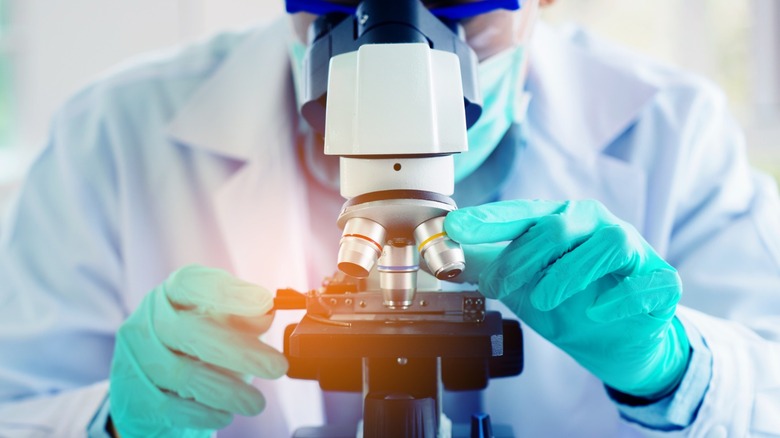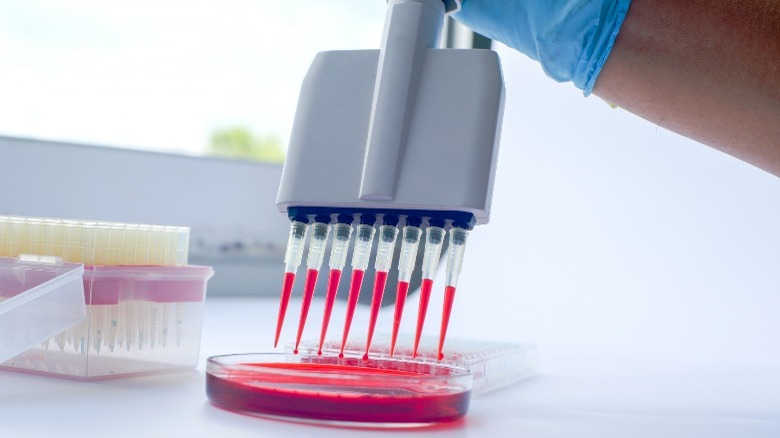Stem Cell Transplants For Leukemia Show Promising Results For HIV Patients
There is some good news for those living with HIV — or human immunodeficiency virus — the virus that causes AIDS. After having received a stem cell transplant three years ago for leukemia, a 66-year-old man with HIV has reportedly entered long-term HIV remission. The anonymous man, also known as "the City of Hope patient" for the cancer center where he received his treatments, has been living with HIV since 1988. He never expected the day would come when he would be free of HIV. The patient's doctors first detected the absence of the HIV virus in the man's system two years following his stem cell transplant, per MedicalNewsToday.
Using stem cell transplants as a method to eliminate HIV is not new — three other patients have also gone through the extensive procedure. However, Dr. William Schaffner, professor of medicine in the division of infectious diseases at the Vanderbilt University School of Medicine, told MedicalNewsToday that the procedure can't be applied to the wider population at this stage. For one, the stem cell donor must carry a rare genetic mutation that makes the person immune to HIV, and it is difficult to find those donors. Dr. Schaffer also explained that the procedure is dangerous.
Despite the limitations surrounding stem cell transplants and the fact that this kind of result is not "new news," health experts are highlighting its significance. They note that this result once again proves that stem cell transplants are effective in leading to long-term HIV remission.
What are stem cells?
According to the University of Nebraska Medical Center, the initial breakthrough in stem cell research came in 1981. Scientists studied embryos in mice and uncovered methods to derive stem cells from the embryos. This was the precursor to researchers discovering how to perform the same process with human embryos in 1998.
The Mayo Clinic describes stem cells as the primary, raw cells that generate all the body's specialized cells. Under specific conditions, stem cells can then split into daughter cells. These become the body's more specialized cell types, such as blood cells and brain cells.
Because stem cells are cells in their most raw form, scientists are hoping that research will reveal more about the onset of diseases by observing how they evolve in the muscle cells, bone cells, and other cells in the body. Stem cells can also impact certain diseases through the generation of healthy, specialized cells and tissues. For instance, stem cell therapy could potentially help people with spinal cord injuries, Parkinson's disease, cancer, heart disease, and other diseases.
While stem cell research holds much promise, stem cell transplants can potentially have negative effects on the body. It may trigger an autoimmune response where the body regards the stem cells as foreign invaders and attacks them in response. However, scientists are continuing to research ways to prevent these types of issues, per the Mayo Clinic.


